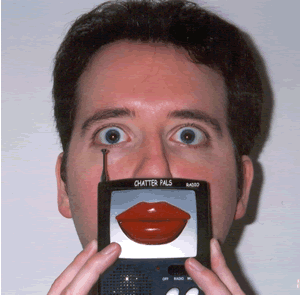Had our first rehearsal for "A Richard Donner Heaven" last night. It went very well. The first half was spent talking about my vision and the emotional spine of the play, and Mike and Tiffany gave their input and questions about the characters. We then did several read-throughs. First we concentrated on the delivery of the words, then I let the actors make natural and spontaneous movements as they read. It's a good way to get into the play before worrying about formal blocking. Plus, I like the actors to have some freedom about line readings and movement as they discover their words and their characters. When we encounter a point that has multiple interpretations, I'd rather discuss it with the actors and decide which way to go then to arbitrarily dictate how it must be done in advance. I guess that's why I'm not a good chess player. Why play a game if you already know the 50 moves in advance? Art should surprise you. If I wanted a set of specific responses for every beat of the play, I'd have to be a puppeteer, not a director.
I have a few different philosophies as a director:
1) The two most important decisions a director must make is what the central vision of the piece will be, and picking the right cast and crew. I truly believe having the right people on and behind the stage is 70% of the work. If you've chosen well, the hardest part of staging a production is behind you.
2) The director must inspire. He or she is the center of the hub, and if he or she doesn't have enthusiasm for the project, no one will. "Inflate, don't berate." It's never a waste of time to tell the cast and crew how fantastic they are doing -- while pushing them to do even more spectacular of a job.
3) Directors should always hold the cast and crew to his or her central vision, but never micromanage their contributions. This is especially true of actors. If a director wants to nitpick every arched eyebrow and emphasized syllable of an actor, you're stifling their creativity. Plus, you should have just hired robots.
4) Directors are benign monarchs. Everyone contributes to a show, even the person who sweeps the stage. A good idea can come from anywhere, and when a production is working well, the ideas are flying left and right. However, a production is not a democracy. A good director listens and respects everyone, but ultimately he or she makes the final decision. If your cast and crew respects you, and you make your reasons clear, they should go along with it.
Next week I hope to post a few pics from rehearsal.
skip to main |
skip to sidebar

Welcome to the Blog of ADAM D. WATSON, an English teacher at a Kentucky public high school. I also write (short stories, poetry, essays, plays) and direct & produce theatrical works.
Blog Archive
About Me

- AdamDWatson
- Teaching high school English since 2005, a writer since I read Stephen King in elementary school, and a huge fan of theater and film.







